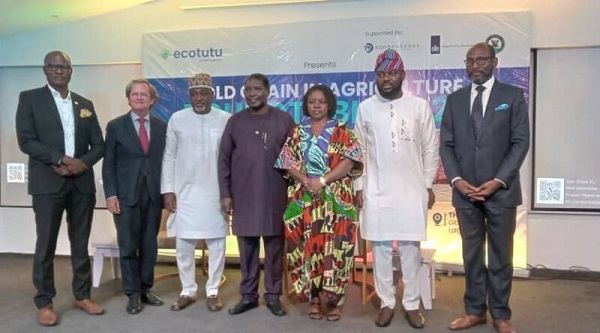Lagos State, in collaboration with various partners, is intensifying efforts to combat Nigeria’s alarming annual post-harvest losses, a crisis currently estimated at a colossal N3.5 trillion. This significant drain on the nation’s agricultural sector not only exacerbates food insecurity but also severely impacts the livelihoods of countless farmers and the broader economy.
This was the spearpoint of the Ecotutu Chain in Agriculture Roundtable held yesterday in Lagos. The roundtable was themed “Accelerating Cold Chain Adoption for a Sustainable Agricultural Future in Nigeria.”
Experts highlight that up to 40 per cent of harvested crops in Nigeria perish before reaching consumers, a figure that far exceeds the African average. The immense wastage is primarily attributed to inadequate storage facilities, inefficient transportation networks, limited access to modern preservation technologies, and a critical lack of cold chain infrastructure.
Lagos Commissioner for Agriculture and Food Systems, Abisola Olusanya, reiterated the determination of the government to support young innovators and startups to develop storage solutions and post-harvest technologies for farmers.
She emphasised the importance of collective action from all levels of government, private enterprises, and consumers to build a more resilient and sustainable agricultural sector.
According to her, the government is developing a unified database for farmers and the broader food industry. The purpose, she indicated, was to create a more efficient, transparent, and responsive food system within the state.
The database will be a central repository of vital information, not only on farmers and their produce but also on food purchase and consumption patterns across Lagos.
She indicated that data will be gathered from the Central Food Systems and Logistics hub in the Epe on completion and existing and proposed food hubs. The real-time information, she maintained, will provide invaluable insights into the flow of food from farm to table.
She highlighted the critical need for reliable data in addressing food security challenges and optimising agricultural productivity.
She commended Ecotutu for its solar powered cold chain facility that has helped to reduce food losses, adding that the government appreciated other such efforts towards creating a more robust and responsive food system for Lagos, promising enhanced food security for the rapidly growing population.
The Deputy Consul General of the Netherlands in Lagos. Peter Keulers said as part of efforts to provide market-led solutions to postharvest losses, the Netherlands government in partnership with Lagos State, developed and launched the Polar Store, an innovative solar-powered cold storage infrastructure in the state. He said the Polar Store serves as both a demonstration site and a training hub, showcasing the potential of renewable energy in cold storage applications.
He said that post-harvest losses have remained a major challenge confronting the Nigerian agricultural sector for so long.
In a spotlight session, the Managing Director, Bank of Agriculture, Jide Sotinrin, said there were ongoing reforms to improve access to finance for farmers.
He said the bank was putting in place a system which will enable faster processing of agricultural loans.
According to him, digitalisation of agricultural lending will ensure instant doorstep delivery of credit to farmers while improving the advancing the bank ‘s mission of fostering rural prosperity.
He said the bank will raise the N250,000 maximum limit micro loans for smallholder farmers, in the light of the realities in the industry.
According to him, the bank will continue to prioritize responsive agricultural finance , aimed at fostering a robust rural economy, alleviating poverty, and promoting self-reliance through agribusiness.
The Managing Director, Ecotutu, Babajide Oluwase said the Cold Chain in Agriculture Roundtable 2025 roundtable aims to address post-harvest losses and fortify Nigeria’s food supply chain.
The roundtable, he indicated ,brought together important players from the agricultural value chain, to discuss scalable solutions to Nigeria’s growing food preservation problems.
[TheNation]


